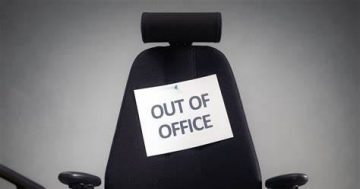John Eades* gives advice to leaders who want to coach their team members to be the very best versions of themselves.
 When it comes to someone developing into the best version of themselves, we’ve been tricked into believing a common myth.
When it comes to someone developing into the best version of themselves, we’ve been tricked into believing a common myth.
It’s the idea that people grow into this version of themselves on their own.
If you just read enough, practice enough or watch enough, your growth and development will take of itself.
There is one big problem with this mindset
You are only going to be able to take yourself so far on your own, and it’s not going to be the best version of yourself.
As Chief Executive of Path for Growth, Alex Judd reminded me in a recent episode of my podcast, “the highest calling of a leader is to unleash the best in others.”
He continued
“If you’re going to pursue that calling of leadership, you have to believe the best is possible.”
There are many reasons leaders stop short of helping unleash the best in others, but to put them in the most common order, it would be this.
They don’t think they are good enough or worthy enough to do it.
They don’t know how to do it.
They are concerned about losing team members to turnover.
They are fearful team members will surpass them (thus the leader becomes less valuable).
If you have ever felt these or experienced any of these from a previous boss, know they are unhealthy and faulty beliefs.
Before anyone can change how they do something, it begins with their beliefs.
If you take nothing else away from this article, please remember this — the things you believe determine how you behave.
So how do you change your beliefs and unleash the best in others? Here are four tips to keep in mind.
You can’t do it for them
I know this sounds counterintuitive, but you have to start with the correct mindset that you can’t do the self-disciplined work for anyone else.
You should model the behaviour and demonstrate to team members the kind of effort and discipline it takes to unleash the best version of yourself, but you shouldn’t force them to do the same.
A leader’s job is not to do the work for someone else.
Instead, it’s to be a vehicle to help them develop.
Discover what they are trying to achieve
The best and easiest way to unleash the best in others is to have a solid grasp on what they are trying to achieve.
Too often, leaders assume people want to arrive at the same or a similar destination as they do.
For example, it’s possible for a college basketball player to have a vision of playing in the NBA, but not every college basketball player wants to play professional basketball.
The only way to unleash the best in others is to uncover their personal goals, dreams, and aspirations and tie your coaching to helping them achieve those things.
Challenge their growth
If you settle for the same opportunities, output, or effort people give on a day in, day out basis; there won’t be much growth.
Often what leaders must do is to challenge their team healthily.
Challenging people in a healthy way comes in many forms.
For example, you can do it verbally in coaching interactions or with development opportunities such as industry events, distributing books, sharing blogs, or bringing in a speaker.
Instead of getting caught up in how you do this for your team, the key is that you are doing it.
The danger of this kind of challenging approach is the people you are trying to develop don’t know you care about them.
Keep in mind one of my favourite leadership lessons, “connect before you correct.”
Be an uber-coach
One way a leader separates themselves from being a manager is the mindset they take to coaching others.
A coach, by definition, trains and instructs.
In our Coaching for Excellence workshops, I teach leaders to embrace the mindset of an uber-coach.
Much like an Uber driver, leaders must be willing and able to coach team members anyplace and anytime when needed or required.
Coaching once a year in a performance review isn’t coaching, it’s negligence.
If you are going to unleash the best in others, you must coach them like crazy.
While outside professional or executive coaches can provide tremendous perspective, they can’t coach daily.
If you lead a team, it’s your responsibility to make coaching your people a top priority.
Doing these things will not work on 100 per cent of the people you pour into, but it will work on individuals who are coachable and desire to get better.
This is when your leadership efforts will propel them to unleash the best version of themselves and allow them to move onwards and upwards.
*John Eades is the Chief Executive of LearnLoft a leadership development company. He can be contacted at johneades.com.
This article first appeared at johneades.com.











